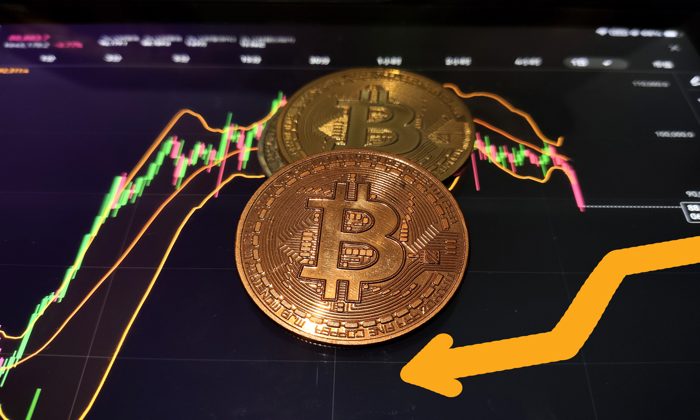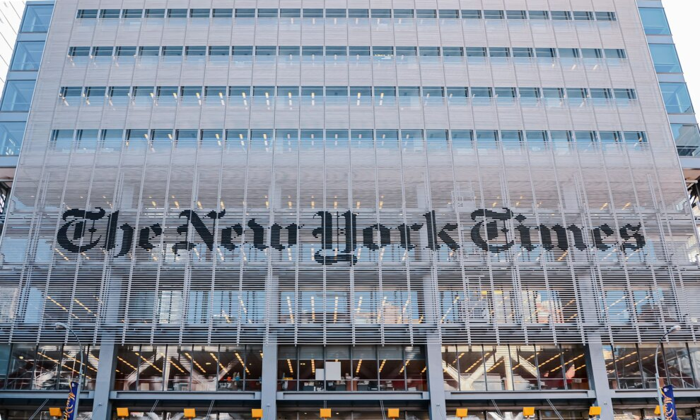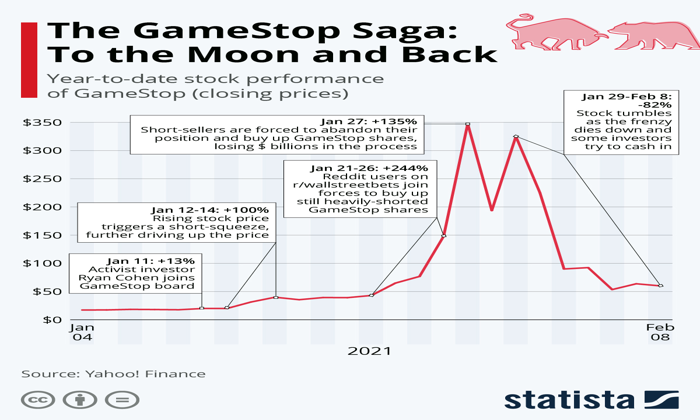Bitcoin tariffs have recently been thrust into the spotlight, coinciding with a notable Bitcoin price drop that has left many investors concerned. The reintroduction of tariffs by a U.S. appeals court can significantly impact cryptocurrency markets, contributing to the growing market uncertainty. Just hours after a trade court deemed these tariffs unconstitutional, analysts observed a nearly 3% decline in Bitcoin’s value, demonstrating the volatile nature of digital currencies. In this turbulent environment, Bitcoin ETF outflows also reached alarming figures, with investors pulling out a staggering $347 million, the largest single-day exodus since March. All these elements reflect an intricate landscape of cryptocurrency news, further complicated by geopolitical tensions and economic factors like inflation and interest rates.
The recent developments surrounding cryptocurrency taxation and regulation have sparked intense discussions within the financial community. With tariffs reminiscent of trade war tactics resurfacing, the implications for digital assets like Bitcoin are profound. As Bitcoin experienced a sharp decline in value, many analysts pointed to the unpredictable nature of market forces influenced by governmental policies. The significant outflows from Bitcoin exchange-traded funds indicate a cautious approach among institutions navigating these turbulent times. Understanding the broader financial context, including inflationary pressures and interest rate changes, is essential for grasping the current state of cryptocurrency investments.
Impact of Trump Tariffs on Bitcoin Markets
The recent reinstatement of President Trump’s tariffs has sent ripples through the cryptocurrency markets, particularly affecting Bitcoin. As the U.S. appeals court reversed the previous ruling that deemed these tariffs unconstitutional, Bitcoin saw a nearly 3% decrease in price. This volatility not only reflects the immediate reaction of investors but also highlights the broader implications of governmental policies on the cryptocurrency landscape. Tariffs have historically introduced layers of complexity and uncertainty in financial markets, and cryptocurrency is no exception.
Traders and analysts are closely monitoring how the market will respond to these ongoing regulatory changes. With Bitcoin already struggling with pressure from inflation and interest rate hikes, the uncertainty created by Tariffs is compounding these issues. The previous optimism surrounding Bitcoin’s price stability rapidly dissipated, and market confidence appears to be faltering as uncertainty reigns. Investors are now left questioning how far these tariffs will impact the overall market and whether Bitcoin can recover from this drop.
Bitcoin Price Degeneration Amid Market Uncertainty
Amidst the backdrop of rising market uncertainty, the recent Bitcoin price drop is particularly noteworthy. Traders have noted that the legal wrangling over Trump’s tariffs could lead to increased volatility within the cryptocurrency space. As institutions begin to react to these changes, caution appears to be the prevailing sentiment. It’s evident that even a slight adjustment in tariffs can lead to significant fluctuations in Bitcoin prices, illustrating the sensitivity of cryptocurrencies to macroeconomic factors.
Additionally, the ongoing fear surrounding inflation-adjusted price forecasts has not been conducive for Bitcoin’s assurance. Market participants are apprehensive about how regulatory changes, including tariffs and potential interest rate rises, will continue to impact Bitcoin’s value. With Bitcoin ETFs experiencing net outflows of $347 million—the highest since March—it’s clear that investors are reevaluating their positions amidst a cloud of ambiguity surrounding future price movements.
The Effects of Bitcoin ETF Outflows
The recent trend of Bitcoin ETF outflows signifies a cautious approach by institutional investors amid raised tariffs and market instability. The sharp $347 million outflow points to a growing trend where risk management is prioritized over aggressive trading strategies. This reflects a strategic pivot as stakeholders assess the longer-term implications of potential fiscal policies that could lay heavy on cryptocurrencies, including Bitcoin. Many are starting to see Bitcoin not just as a digital currency, but as an asset vulnerable to traditional market dynamics.
The outflow could also indicate a broader sentiment among investors, signaling that institutional confidence in Bitcoin is wavering partially due to external economic pressures. Traders are constantly weighing the potential profit against the deterrents presented by the market climate, and with legal uncertainties at the forefront, many elect to take a step back. As Bitcoin navigates these choppy waters, the market will be testing its resilience against ongoing outflows and the shifting landscape of economic policy.
Bitcoin and Inflation: Navigating the Challenges
The current market climate has exposed Bitcoin to the adverse effects of rising inflation which has been exacerbated by the reintroduction of tariffs. Investors are increasingly concerned that inflation may erode Bitcoin’s potential as a hedge against economic instability. While many in the cryptocurrency community view Bitcoin as ‘digital gold’, the true test will be its ability to maintain value during turbulent economic times. This ongoing inflation debate significantly influences investor decisions as they weigh the desirability of Bitcoin against traditional assets.
In light of rising costs and economic uncertainty, there’s a growing conversation about Bitcoin’s role in a diversified investment strategy. As tariffs continue to impact the global economy, many investors are shying away from riskier assets like cryptocurrencies, perceived as more volatile. Bitcoin must prove its stability not merely as a speculative investment but as a reliable store of value in times of economic strife, pushing it to adapt and prove its worth under these challenging conditions.
Market Reactions to Cryptocurrency News
Recent news events have significantly shaped market sentiment, especially regarding Bitcoin. The reinstatement of Trump’s tariffs has fed the narrative of uncertainty, leading to rapid price adjustments and market reactions. Traders are being forced to respond promptly to shifting headlines, which creates a whiplash effect, causing prices to swing dramatically within short timeframes. This hyper-sensitive environment has traders second-guessing even the simplest of strategies as they try to navigate through unpredictable waters.
In this climate, staying informed on cryptocurrency news becomes paramount for investors looking to safeguard their interests. The interplay between current events, such as tariff legislation, and Bitcoin’s performance illustrates the necessary adaptability investors must have. The current surge in regulatory discussions and geopolitical concerns is a testament to the intersection of traditional finance and cryptocurrencies, making it essential for stakeholders to pivot quickly based on the unfolding landscape.
The Future of Bitcoin in an Evolving Economic Landscape
As the economic landscape shifts with the reinstatement of Trump’s tariffs, the future trajectory of Bitcoin remains uncertain. Investors are keenly interested in how these policies will shape market dynamics and Bitcoin’s valuation. Faced with pressures from inflation and geopolitical tensions, Bitcoin has to overcome significant hurdles if it is to establish itself as a safe haven asset. Potential recoveries will likely depend on how regulators and policymakers respond to economic challenges that could impact the cryptocurrency market.
Furthermore, stakeholders will need to reassess Bitcoin’s competitive advantages against economic shifts. Institutional adoption was once on the rise, but with tariffs and their subsequent effects on market sentiment, a regression could occur unless clear strategies and regulations develop. The need for Bitcoin to integrate itself into traditional economies while resisting disruptive forces will define its path forward as a leading cryptocurrency. Investors will continue to watch closely, anticipating changes that may stabilize or further destabilize Bitcoin’s role in global finance.
Understanding the Correlation Between Tariffs and Bitcoin Pricing
The correlation between tariffs and Bitcoin pricing is a pressing concern for analysts as recent events unfold. As tariffs were temporarily reinstated, Bitcoin’s price experienced notable drops, emphasizing the sensitivity of cryptocurrencies to governmental decisions. This volatility invites a closer examination of how traditional economic practices can influence the burgeoning framework of digital assets. Understanding these dynamics can help investors prepare for potential scenarios where Bitcoin is affected by external factors beyond its inherent market mechanisms.
Furthermore, as we analyze historical data trends, it’s evident that significant economic changes, such as tariffs, tend to trigger substantial shifts in cryptocurrency valuation. The latest incidents of price decline raise questions about Bitcoin’s assumed independence from fiat currency influences. As we continue to evaluate the impact of tariffs, tracing the connection between traditional markets and cryptocurrency performance will become increasingly critical for stakeholders navigating these tumultuous waters.
Adapting Investment Strategies in Response to Market Changes
In the wake of recent market upheavals tied to Trump tariffs, investors are urged to modify their investment strategies to better cope with the complexities faced by cryptocurrencies like Bitcoin. This period showcases the necessity for flexible approaches, as traditional buy-and-hold techniques may not bear fruit in a climate of rapid change. Investors should consider diversifying their portfolios to include a mix of assets that can weather the turbulence highlighted by tariff reinstatements and other regulatory updates.
Additionally, remaining abreast of market trends and news will be crucial in refining investment tactics. The integration of data analytics and market sentiment analysis will provide astute investors the insights needed to anticipate shifts. As Bitcoin continues to fluctuate with ongoing tariff implications and potential ETF developments, cultivating an adaptable mindset will be essential for successfully navigating this unpredictable environment.
Long-Term Outlook for Bitcoin Amidst Tariff-Driven Uncertainty
Looking ahead, the long-term outlook for Bitcoin remains clouded by tariff-driven uncertainty. Investors are grappling with the implications of fluctuating federal policies and how these may impact Bitcoin’s future pricing. As more tariffs are debated and potentially implemented, the cryptocurrency market may have to contend with heightened instability. This opens the door for both risks and opportunities, making it essential for participants to stay informed and agile.
Moreover, the sustained growth potential of Bitcoin will largely hinge on its adaptability to external pressures. Proponents argue that Bitcoin can weather such storms due to its decentralized nature; however, the reality reveals complexities that could mold its trajectory. As economic indicators shift and investors reevaluate their positions, Bitcoin’s resilience will be put to the test, with its ultimate fate intertwined with broader economic trends influenced by tariffs and geopolitical factors.
Frequently Asked Questions
How do Bitcoin tariffs affect the cryptocurrency market and its prices?
Bitcoin tariffs can significantly impact the cryptocurrency market by injecting uncertainty, as seen in the recent nearly 3% drop in Bitcoin’s price. Trade policies like Trump tariffs can create an environment of volatility, affecting investor confidence and leading to fluctuations in Bitcoin prices.
What was the impact of Trump’s tariffs on Bitcoin’s price drop?
The temporary reinstatement of Trump’s tariffs led to a nearly 3% drop in Bitcoin’s value, demonstrating how geopolitical decisions can influence cryptocurrency prices. As tariffs create market uncertainty, investors may respond by pulling back from risky assets like Bitcoin.
Are the recent Bitcoin ETF outflows related to Trump tariffs?
Yes, the recent outflows of $347 million from U.S. spot Bitcoin ETFs were affected by the uncertainty surrounding Trump tariffs. This reflects a cautious approach from institutional investors who are responding to the increased risks associated with tariffs and fluctuating market conditions.
How does market uncertainty from tariffs influence Bitcoin investment strategies?
Market uncertainty from tariffs encourages Bitcoin investors to adopt a more cautious approach. With ongoing geopolitical instability and legal challenges to tariffs, experts suggest that investors are adapting their strategies, often resulting in reduced investment in Bitcoin during turbulent times.
What can we learn from the connection between Bitcoin tariffs and Bitcoin’s market performance?
The relationship between Bitcoin tariffs and market performance highlights the importance of external factors on cryptocurrency prices. As seen in recent declines, tariffs can create significant volatility, impacting trading patterns and investor behavior within the Bitcoin market.
| Key Point | Details |
|---|---|
| Bitcoin Price Movement | Bitcoin slipped nearly 3% following the reinstatement of tariffs. |
| Impact of Tariffs | The tariffs were deemed unconstitutional by a trade court but were temporarily reinstated by a U.S. appeals court. |
| Market Uncertainty | This reinstatement is injecting uncertainty into an already unstable market affected by inflation and interest rate fluctuations. |
| Bitcoin ETFs Reaction | U.S. spot Bitcoin ETFs saw a net outflow of $347 million, the largest since March 11. |
| Institutional Investor Behavior | The sell-off indicates institutional caution amid ongoing risks related to tariffs. |
Summary
Bitcoin tariffs have significantly influenced the cryptocurrency market recently. The recent reinstatement of President Trump’s tariffs has prompted a notable decline in Bitcoin’s price, amplifying existing concerns about market instability. As traders and investors adjust their strategies, the impacts of these tariffs underscore the delicate balance between regulatory actions and market sentiment in the evolving landscape of Bitcoin and digital currencies.
Bitcoin tariffs are becoming a pivotal topic in the ongoing discussion about cryptocurrency and its volatility. This week, Bitcoin experienced a price drop of nearly 3% as the uncertainty surrounding President Trump’s recently reinstated tariffs began to weigh heavily on investor sentiment. The reinstatement of these tariffs, which a trade court had previously deemed unconstitutional, has created turbulence in an already volatile market environment. Analysts are closely watching the impact of these tariffs on Bitcoin, as they could influence not only its price fluctuations but also broader market conditions characterized by inflation and political instability. Amidst these developments, cryptocurrency news remains dominated by concerns over Bitcoin ETF outflows, exemplifying a cautious approach from institutional investors managing risk amid rising market uncertainty.
The discussion around tariffs applied to Bitcoin highlights a critical intersection of economic policy and digital currency trends. Recent price movements of Bitcoin, exacerbated by the reimplementation of trade tariffs, reveal how regulatory decisions can ripple through the cryptocurrency market. Investors are especially observant of the implications these tariffs might have on overall market dynamics, including potential impacts on inflation and geopolitical factors. With significant net outflows from Bitcoin ETFs, the mood among market participants reflects a cautious recalibration rather than outright distress. This evolving dialogue about tariffs and their implications for Bitcoin underscores the necessity for investors to stay informed within this rapidly changing landscape.















